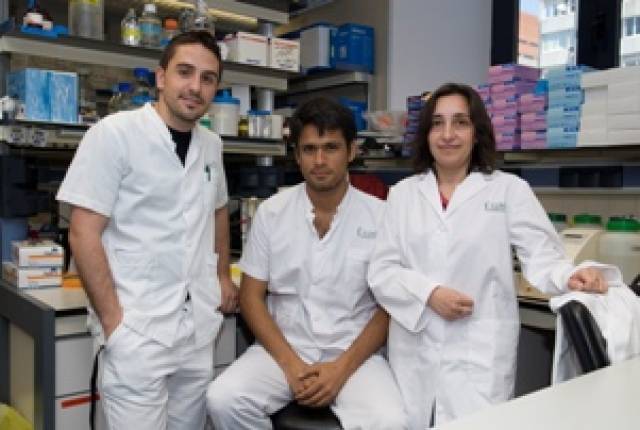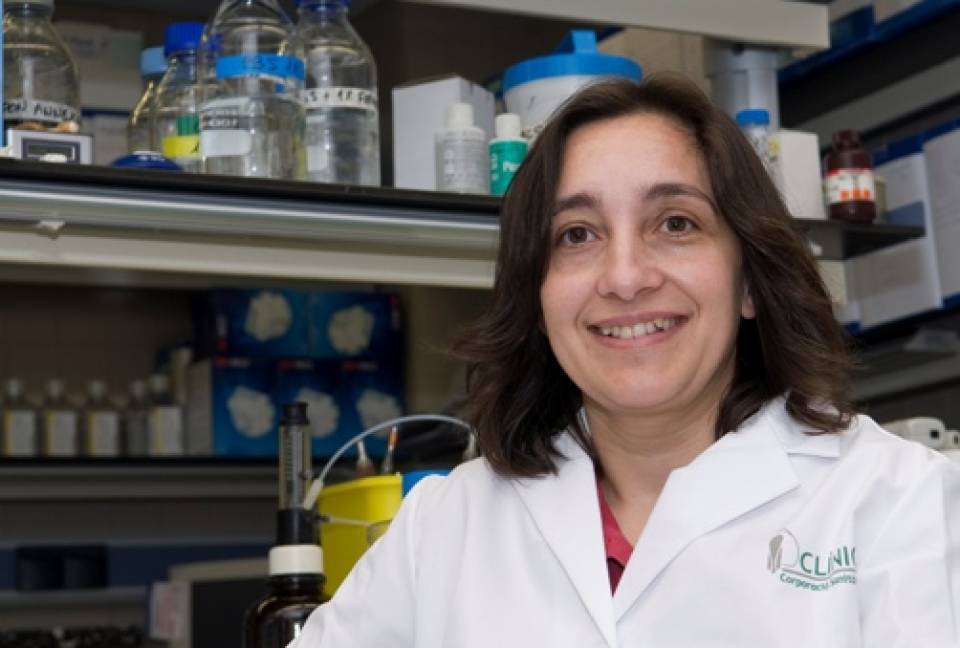Obtaining a preventive vaccine effective against the AIDS virus is one of the main challenges facing modern medicine. The candidates tested to date have shown disappointing results, making innovative approaches that open new lines of research necessary. A study published in Nature Medicine in its next issue presents the encouraging results obtained using a radically new strategy: introducing into the muscle cells of macaques DNA that codes for an antibody-like molecule that is effective against the simian immunodeficiency virus (SIV). The study was led by the Children’s Hospital of Philadelphia of the University of Pennsylvania, the Research Institute at Nationwide Children’s Hospital, Columbus, and the New England Primate Research Center of Harvard University. One of the authors of the study is Dr. Eloísa Yuste, currently a Ramon y Cajal researcher with the IDIBAPS-Hospital Clínic Infectious Diseases and AIDS team, led by Dr. Josep Maria Gatell, who is also a professor at the UB Department of Medicine. Since April 2008, she has been part of the Institut d’Investigacions Biomèdiques August Pi i Sunyer (IDIBAPS), but her role in the study took place during her last 6 months as a researcher at Harvard University. Her new research takes place in the framework of the HIVACAT program(*), co-directed by Dr. Gatell, with Dr. Bonaventura Clotet of IrsiCaixa.

The new proposal consists of injecting an adenovirus containing genetic information that codes for an antibody that is effective against SIV into the muscle cells of 9 macaques. Good results were obtained in mice in previous studies and this study represents a considerable advance for its possible application in humans. Adenoviruses are small viruses that are used as vectors for transferring genetic information to the cells they infect. The 9 macaques were separated into groups of 3 and each group received an adenovirus loaded with the DNA necessary to express a different antibody effective against SIV. In the following weeks, the researchers studied the evolution of the antibodies in the serum of the monkeys and showed that their muscle cells were producing it. After 4 weeks, the 9 immunoprotected macaques were infected with a common form of SIV. None of them developed the disease after a year of follow-up and 6 of them showed no trace of infection.
The results open up a new line of research that could introduce gene therapy as an alternative in the fight against the propagation of the AIDS virus. There are still many questions to be answered, such as the level of protection the technique provides against infection via body fluids, as the antibodies circulating in the blood may not reach optimum concentrations in areas such as the epithelium of the vagina. Nevertheless, the results obtained with vaccines such as that against the human papilloma virus indicate that sustained production of antibodies reaching the blood would also provide protection against sexual transmission. It will also be necessary to find antibodies that are as effective against the different strains of HIV as those used in this study against SIV. The research in the American centers responsible for the article and that of the IDIBAPS team, which Dr. Eloísa Yuste has joined, will look for answers to the remaining questions and will continue to work on this innovative strategy.
(*) HIVACAT is a joint program of Hospital Clínic, Barcelona and IrsiCaixa to research vaccines against HIV. This initiative is funded by Fundació la Caixa, Laboratoris Esteve and the Catalan Ministries of Health and Universities.

